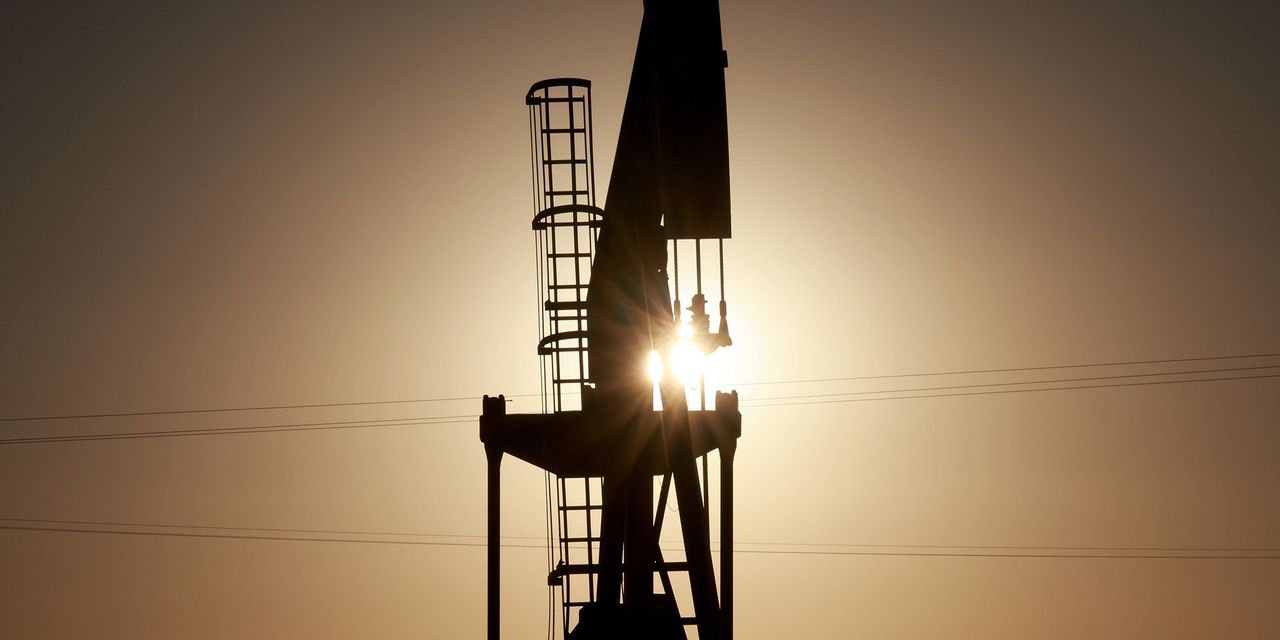Oil futures traded lower early Thursday as investors focused on storage data released a day earlier showing a rise in inventories of gasoline and distillates.
Price action
-
West Texas Intermediate crude for August delivery
CL.1,
-1.37%
fell $1.31, or 1.2%, to $108.47 a barrel on the New York Mercantile Exchange. -
August Brent crude
BRNQ22,
-0.82% ,
the global benchmark, fell 62 cents, or 0.5%, to $115.64 a barrel on ICE Futures Europe. The most actively traded September contract
BRN00,
-1.10% BRNU22,
-1.10%
was down $1.01, or 0.9%, at $111.44 a barrel. -
Back on Nymex, July gasoline
RBN22,
-3.32%
fell 3.3%, while July heating oil
HON22,
-0.45%
was down 0.4%. -
August natural gas
NGQ22,
-1.99%
fell 2.3% to $6.341 per million British thermal units.
Market drivers
The Energy Information Administration on Wednesday released data showing declines in U.S. crude supplies in the past two weeks, totaling more than 3 million barrels, excluding oil from Strategic Petroleum Reserve. The report also showed increases of 2.6 million barrels each for supplies of gasoline and distillates for the week ended June 24. Survey forecasts for declines of 875,000 and 525,000 barrels for gasoline and distillates, respectively.
Meanwhile OPEC+ — the Organization of the Petroleum Exporting Countries and its allies — was widely expected to approve a proposal to boost output by another 648,000 barrels in August, matching its July increase and in line with its announcement following a June meeting.
OPEC+, however, has failed to meet past production increases, a move blamed by analysts on a lack of spare capacity. Outages in Libya have also served to undercut production.
“The increase in production in August would serve to reverse all of the production cuts implemented in May 2020, at least on paper — though in reality OPEC+ is still a long way from achieving this,” said Carsten Fritsch, commodity analyst at Commerzbank, in a note, observing that International Energy Agency data showed production was 2.8 million barrels per day below the agreed level in May.
“The agreement gives those countries whose output is still falling short of the targets until the end of the year to offset this by expanding their production. Only very few of them are likely to be able to achieve this though, either because of limited capacities (especially Angola and Nigeria) or because of sanctions (Russia),” Fritsch said. “The question therefore is whether countries with spare capacities such as Saudi Arabia or the United Arab Emirates will be allowed to step into the breach. Nothing is likely to be said about this today, however.”
